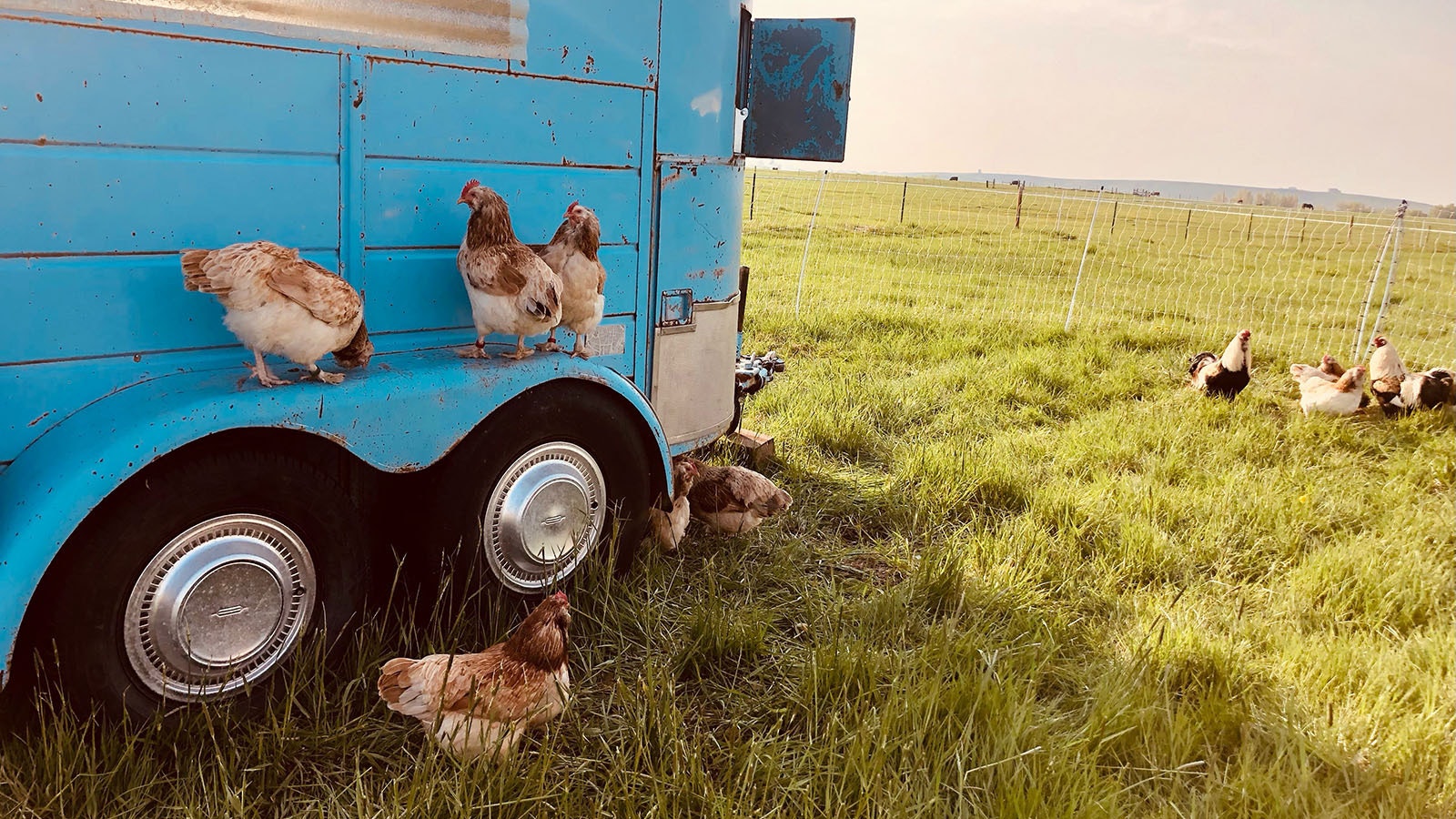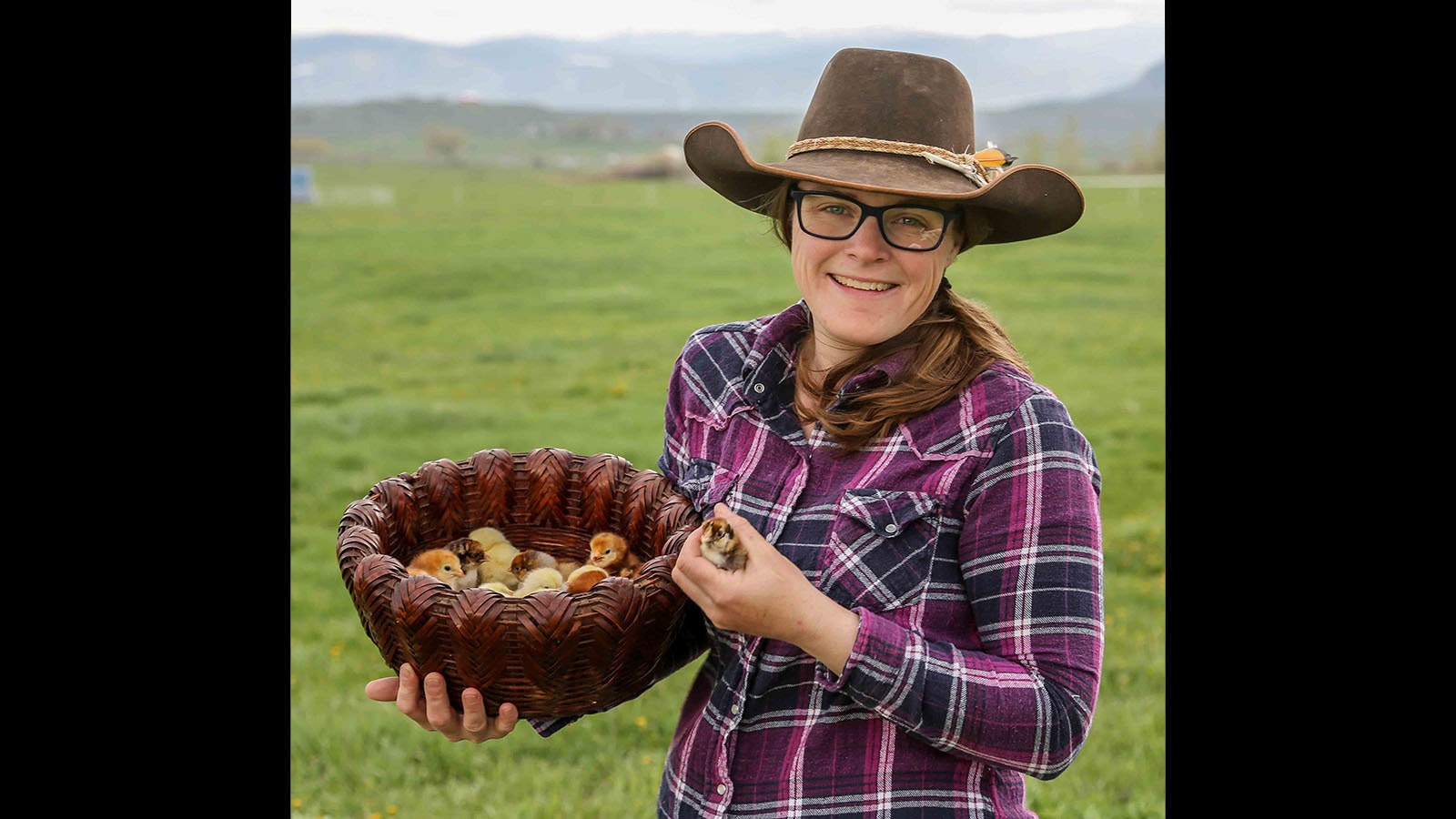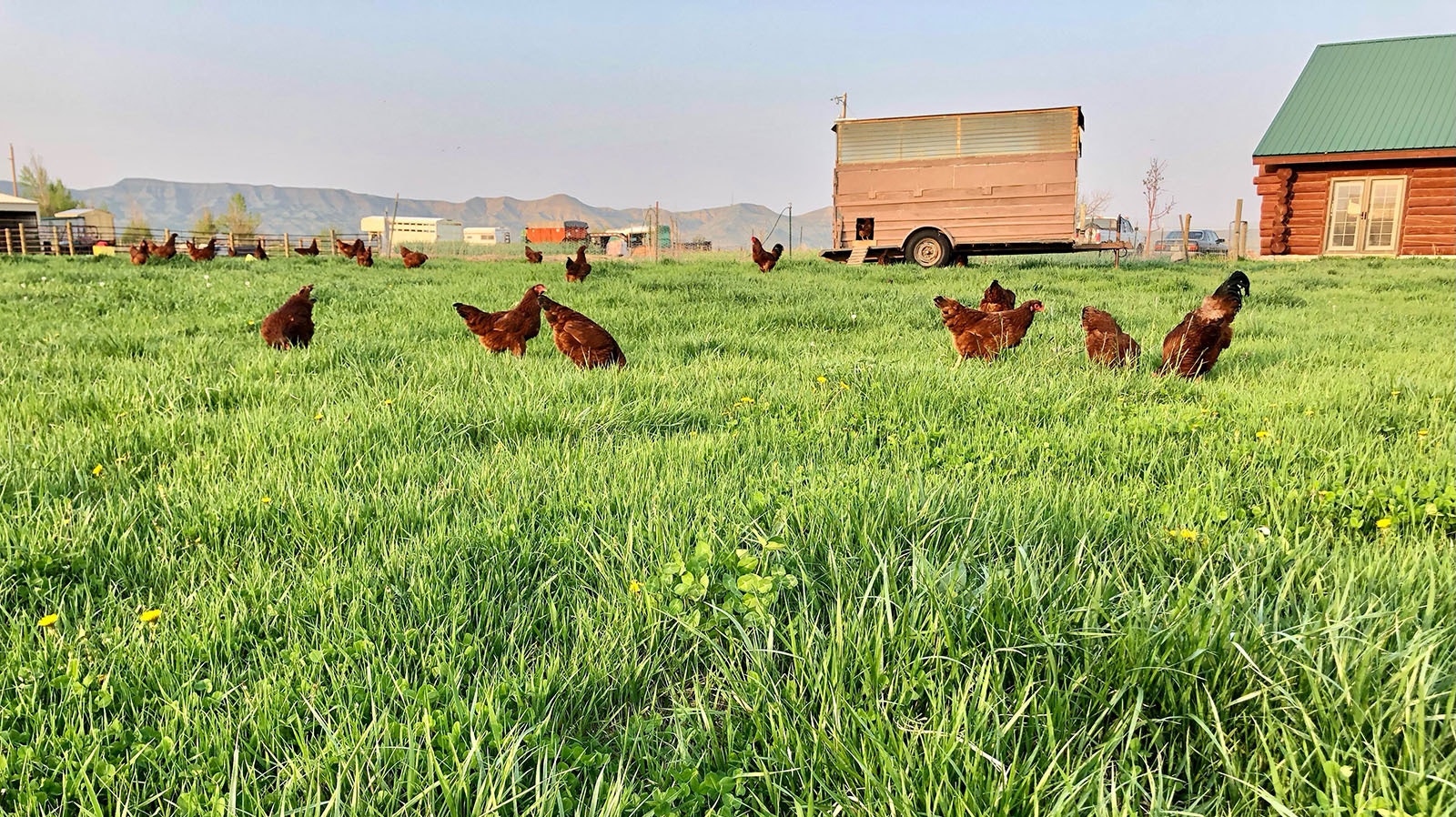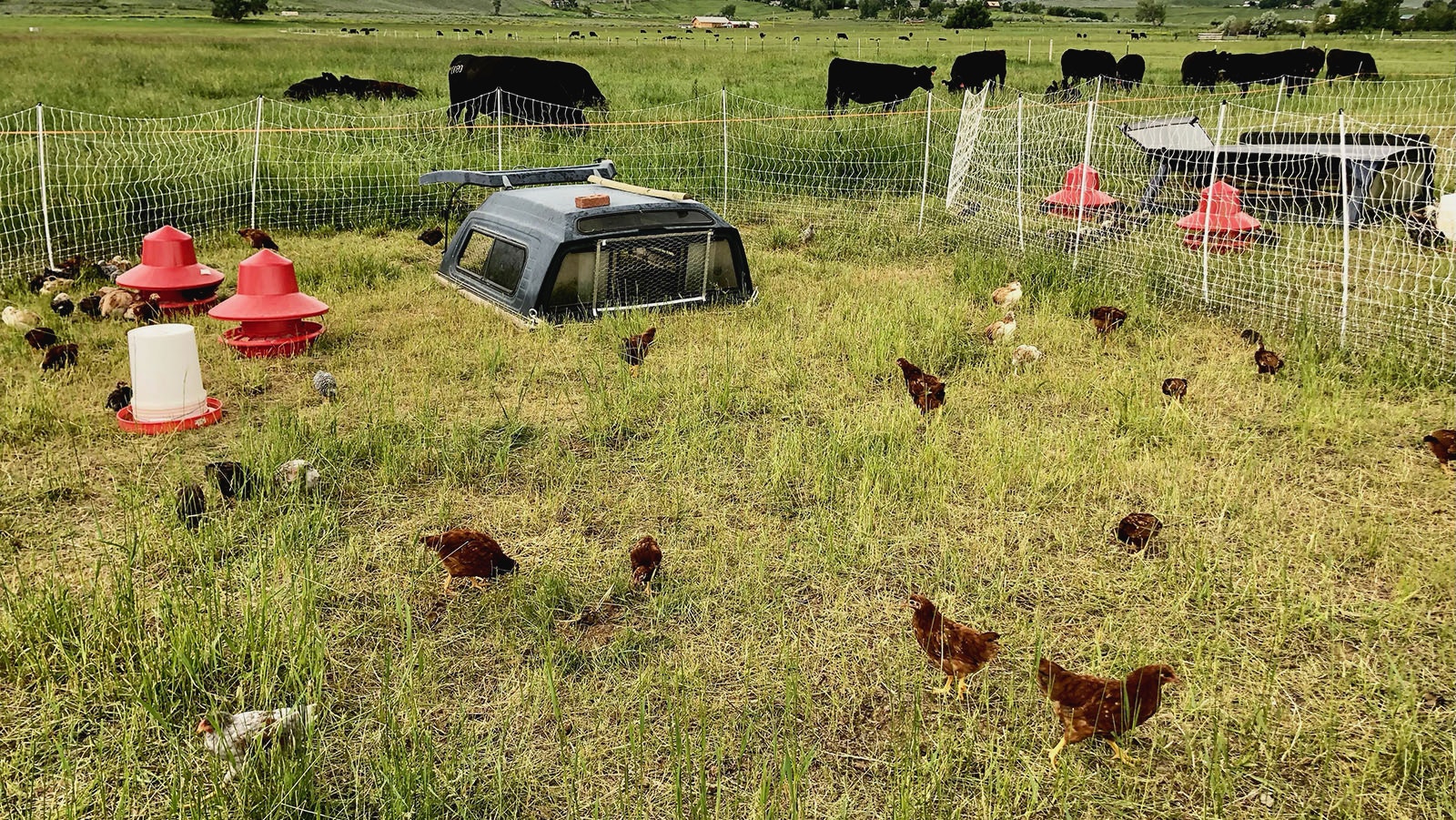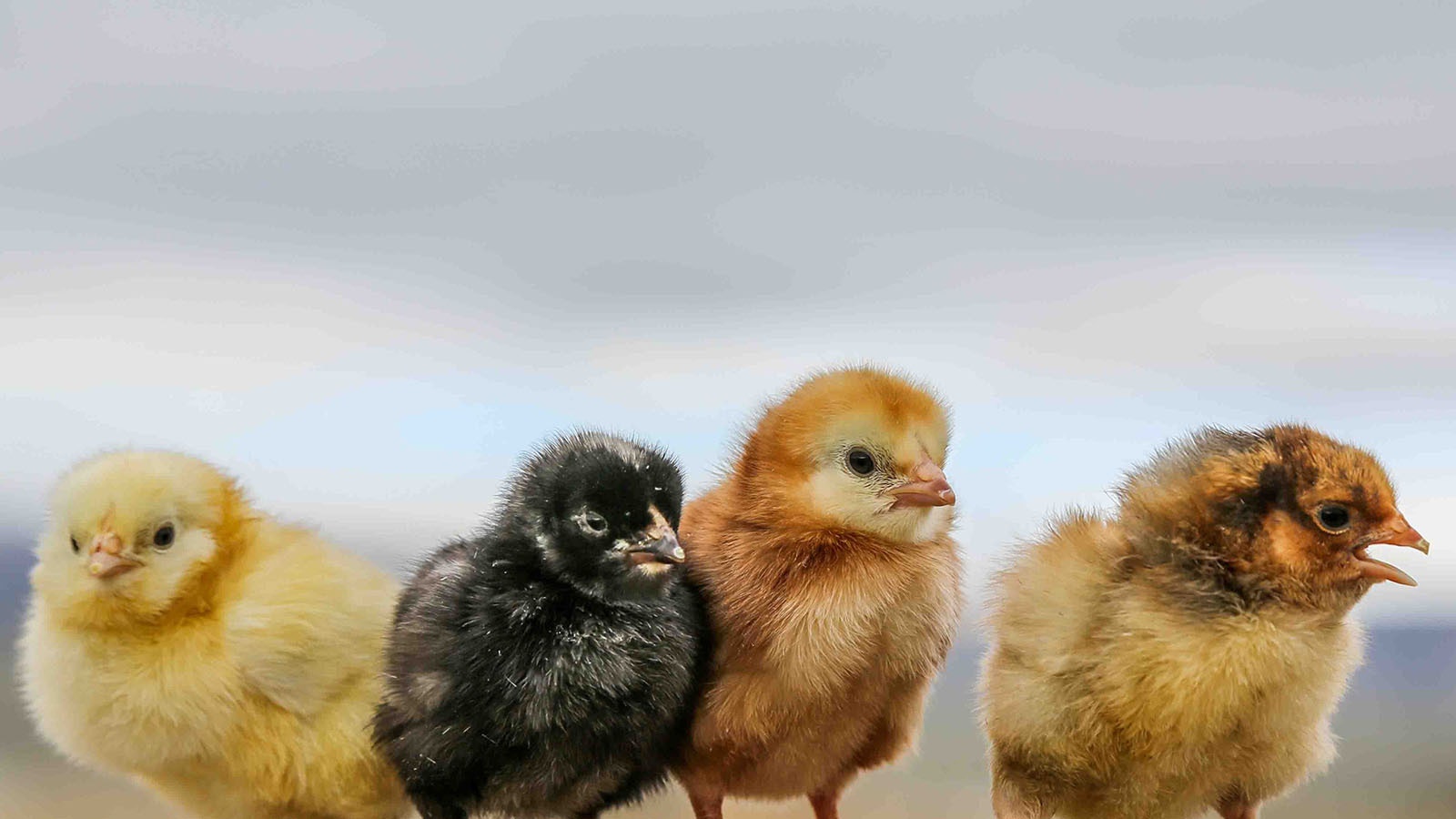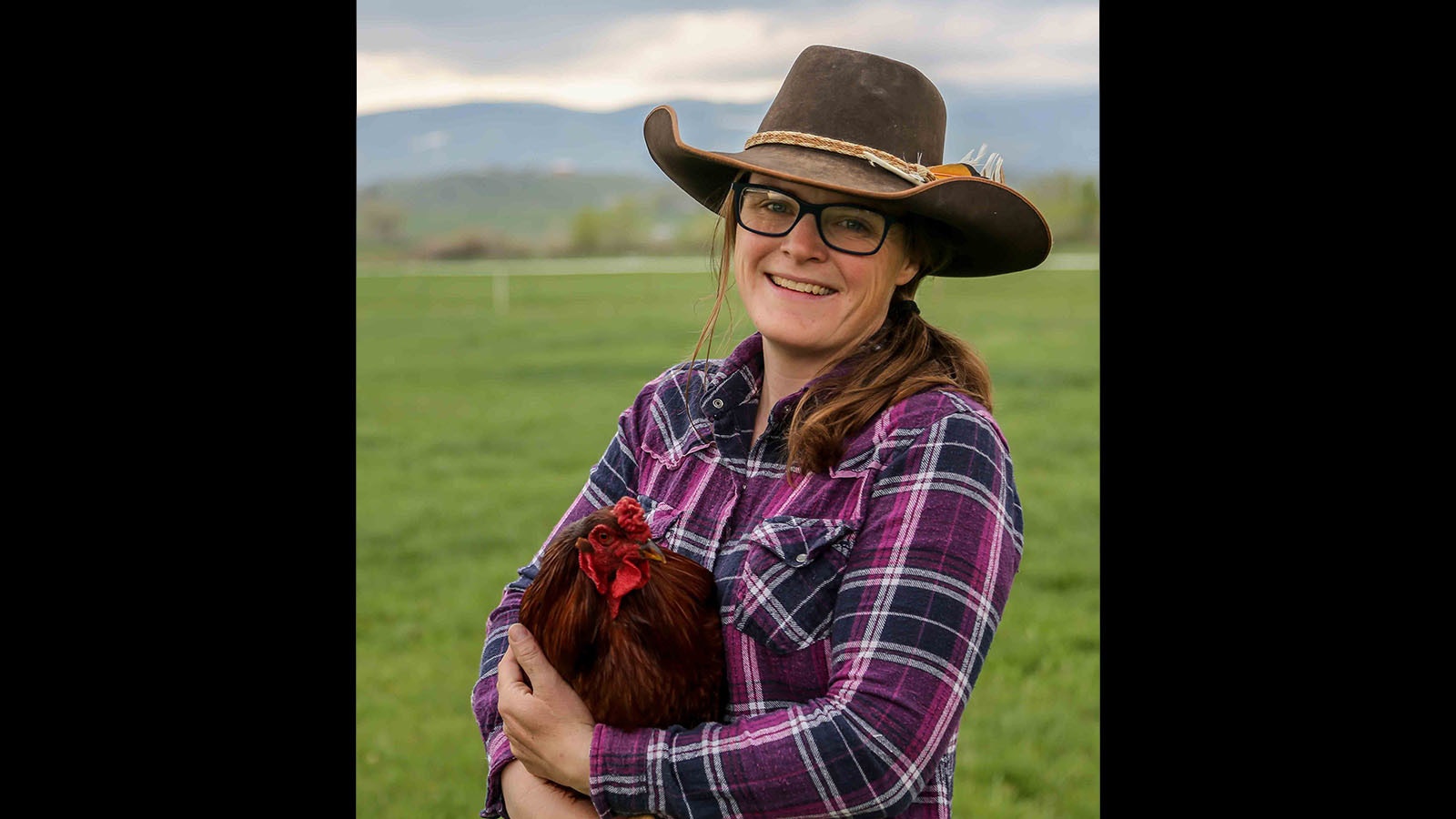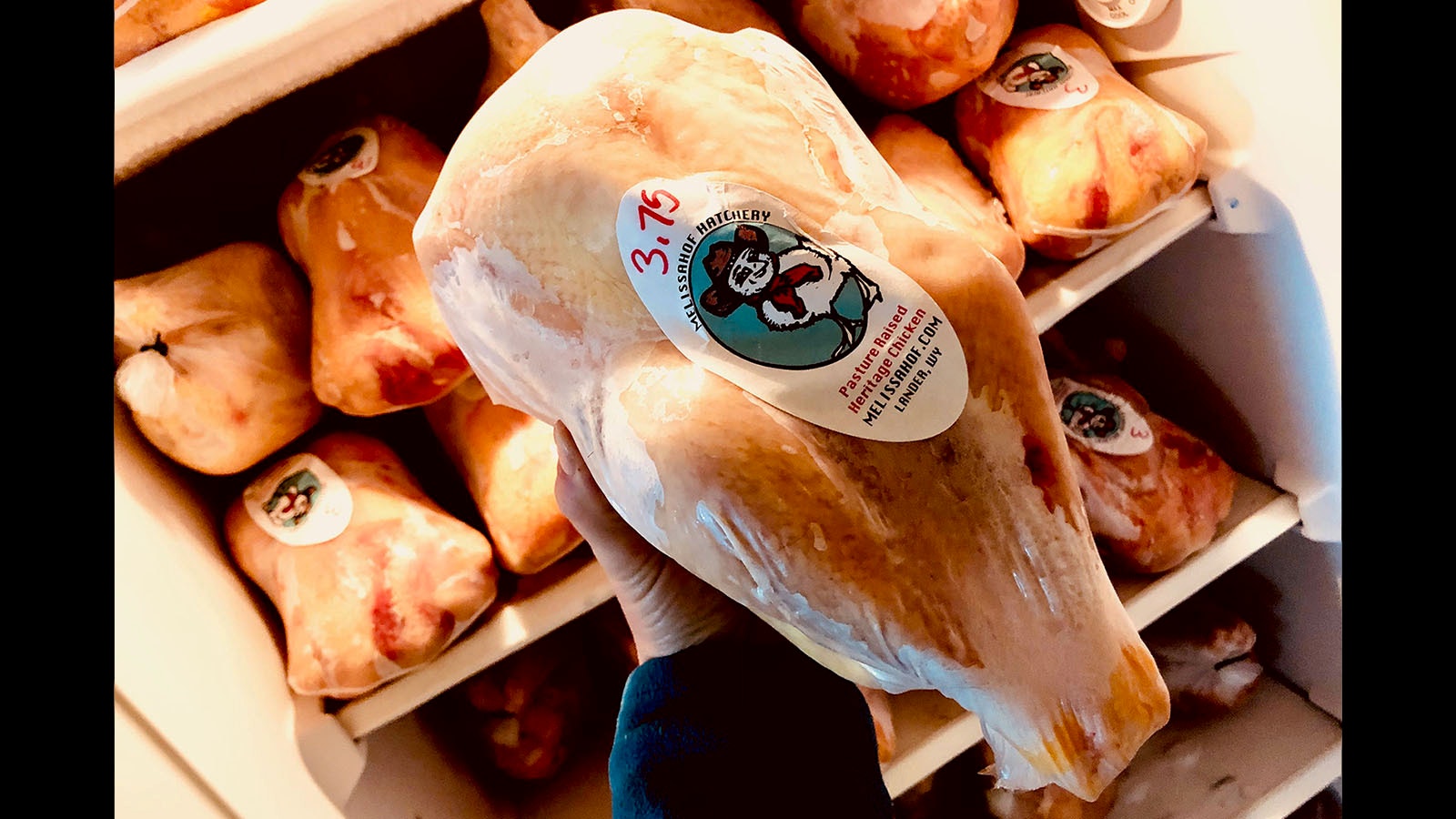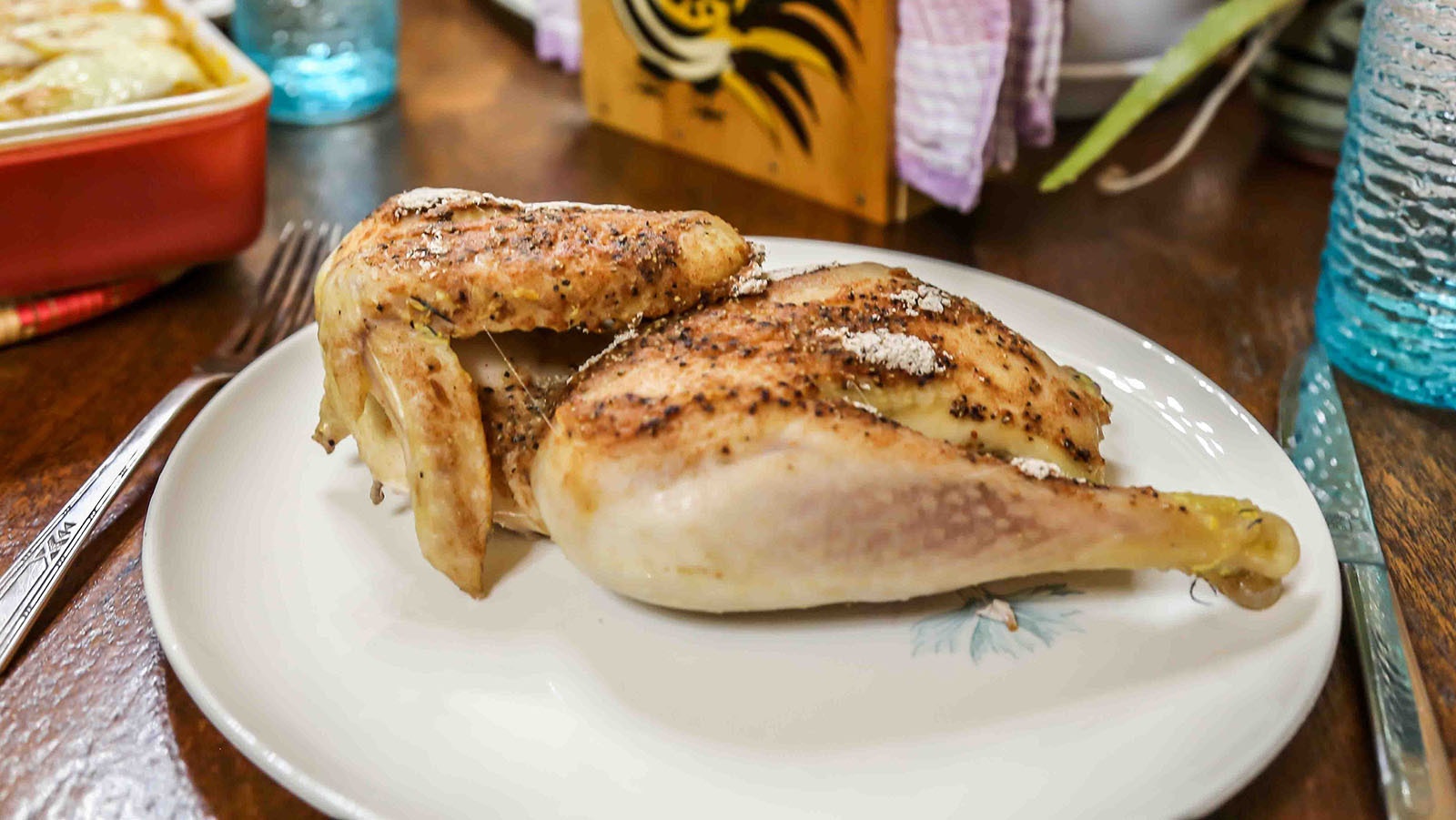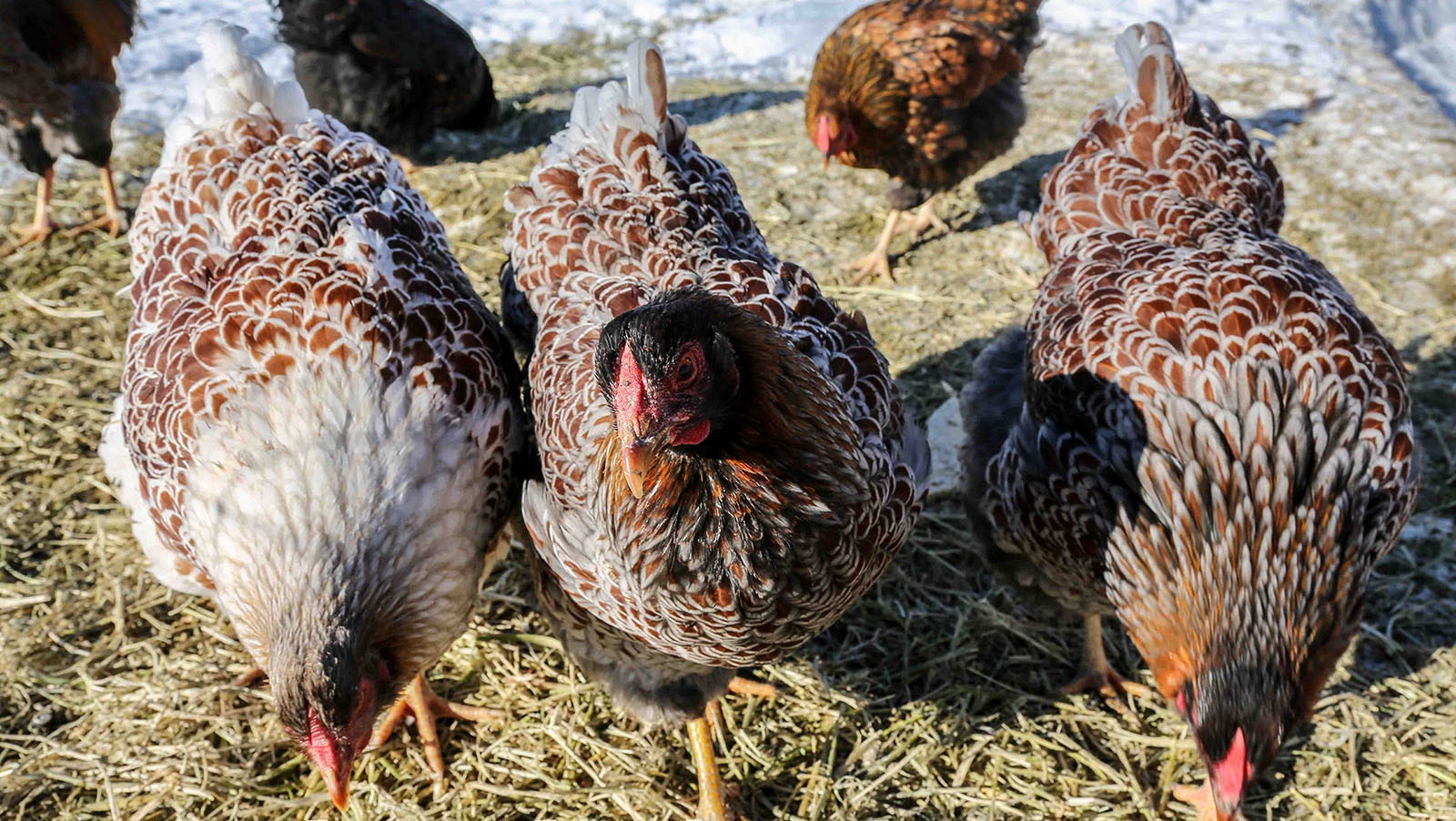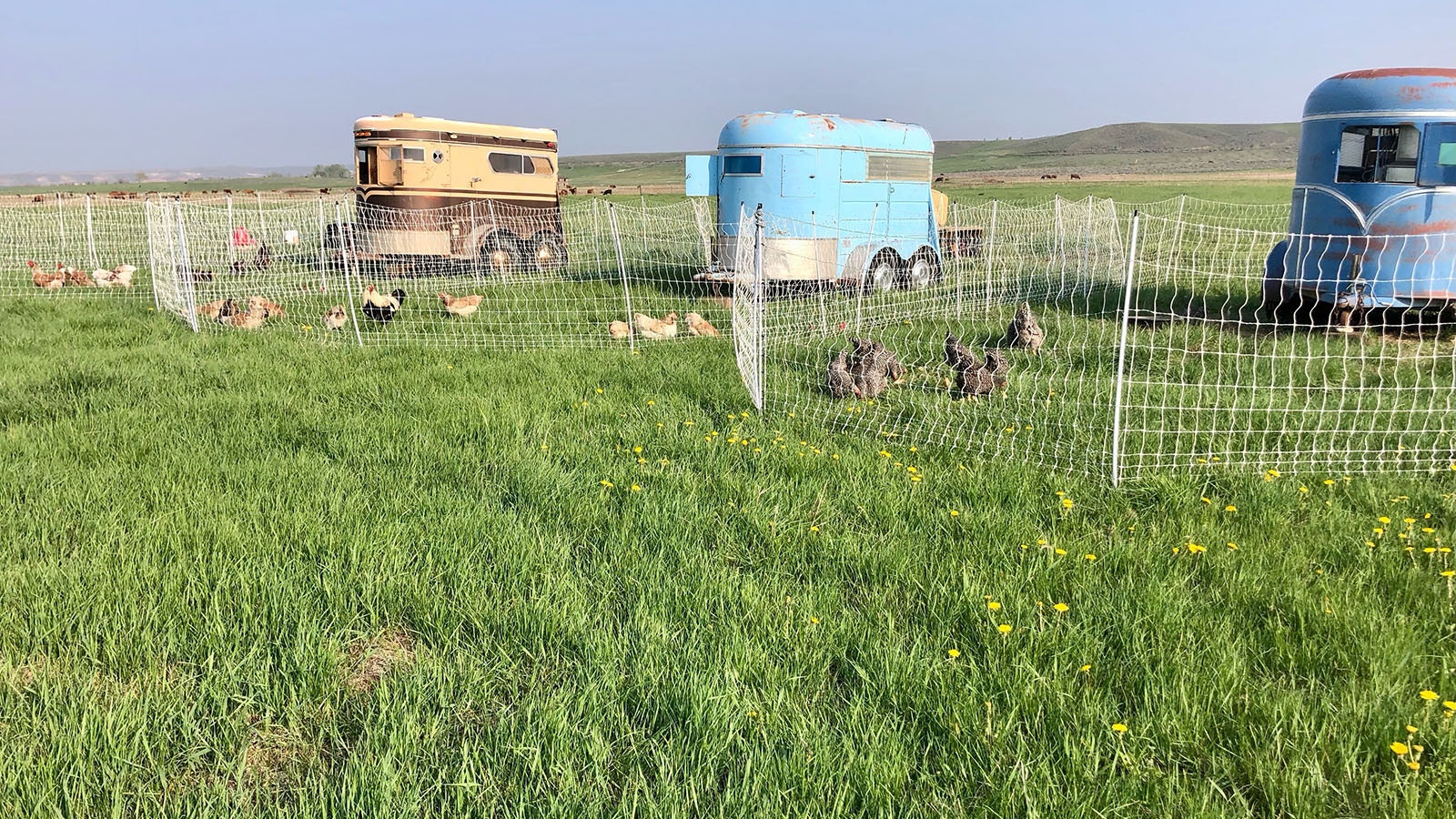Eating food is one of the most intimate things we do, but let's face it, Most Americans take their food for granted.
Few of us give any thought to where our food comes from or how it's raised. Our main concerns are centered around food being plentiful and relatively cheap.
But a few farmers and ranchers around Wyoming are trying to change the way we think about food. One of them is Melissa Hemken, a pastured-poultry producer who farms 35 irrigated acres outside Lander.
Hemken, who owns Melissahof Hatchery, is essentially a grass farmer. The foundation of a farm like hers comes from healthy soils that produce hearty grasses and forbs that in turn feed livestock.
It's a business model in which the animals on the farm do most of the work. In other words, she doesn't harvest grass with a tractor and hay baler, she harvests what the grass produces. In this case it’s chicken eggs, young chickens and chicken meat.
The Humble Chicken
There's a world of difference between the chickens and eggs that come from Melissahof Farm and those mass-produced and sold in grocery stores.
Hemken raises heritage chicken breeds including dominiques, buckeyes, salmon faverolles and blue wyandottes. These breeds are tried and true. There like the granddad's old Buick of the chicken world.
Another important factor is they have small combs. That's the red fleshy bit on top of a chicken's head. Small combs don't freeze and rupture in cold weather. Hemken’s birds also have thicker, tighter plumage, which makes them tough enough to survive Wyoming winters.
These chickens are also slow to mature. They take more than twice as long to grow to butchering size as commercial breeds and the hens need two months longer to reach the age at which they can begin laying eggs.
Illustrating The Differences
If you take an egg from Hemken's farm and crack it in a pan next to a grocery store egg, you'll see a wide contrast. Some of that contrast is directly related to freshness. Like a vine-ripened tomato, a fresh egg has a richer flavor profile and more omega-3 vitamins.
"An interesting thing for consumers to understand is USDA (US Dept. of Agriculture) allows free-range labels on egg cartons even if the chickens are inside all of the time," Hemken said. "So it's really misleading for consumers who assume free range means they are regularly outside on pasture."
An egg is made up of the yolk, the albumen or white and the outer membrane The yolks of a fresh egg will be a much darker, almost an orange color because of the grass the hens eat. That's opposed to a pale yellow-yoked commercial egg that you have to chase all over the pan to keep it together. A commercially-produced egg can be up to a month old when it gets to the grocery store.
Regarding meat, the chickens on Melissahof Farm have to work for a living. She sells breeding chickens and eggs that will be incubated after they're shipped. The roosters that come out of her flock are raised for meat. They're turned out on the pasture every morning.
Most people may not consider chickens as a grazing animal but they can get a lot of their nutritional needs met by green grass and the bugs that live in a pasture, she said.
But they have to walk around and find that food, which builds muscle, another contrast to commercial chicken. Pastured chicken meat will be darker and more dense than regular commercial chicken.
"I picked these breeds because they are dual-purpose or good for both meat and egg production," she said. "It's important for the model of this farm which is essentially a boutique hatchery. I keep the roosters and raise them as meat birds on pasture."
Commercial hatcheries that produce laying hens euthanize most of the roosters that hatch because they have no value.
On Hemken's farm they've got to move their feet to get fed.
"They move around more and the action creates dense muscle that is darker," she said. "In talking with my meat bird consumers, they notice it right away."
What's A Capon?
A new twist at Melissahof Farm this year is the production of capons - a castrated rooster. The flesh from these birds is prized because they don't produce testosterone which makes their meat more tender and mild.
So how do you castrate a rooster?
"I might be the only person in Wyoming who knows how," she said.
Castration in this case is a surgical process but it's not too complicated. It involves plucking a few feathers, making a small incision and then extracting the testicles. When she wanted to learn it she couldn't find anyone in Wyoming who could teach her. She found a woman in Oklahoma and they connected online.
"We did it on Zoom," she said. "She had a rooster on her end and I had a rooster in front of me on this end and that's how I learned."
"The meat from a capon is the most succulent chicken you've ever tasted," she said. "Most people have never heard of them but the chefs I work with are very excited to get them."
All of the meat chickens she raises are butchered on the farm. She hires a crew of six and can process 100 birds in four hours including set up, clean up and tear down. They use an automatic scalder and plucker to remove the feathers. The rest is done by hand.
Her products are for sale by order on her website.
She puts a lot of work into sharing how her farm works and what makes it unique on the website. She also sells chickens and fresh eggs at farmers markets in Jackson and Lander.

